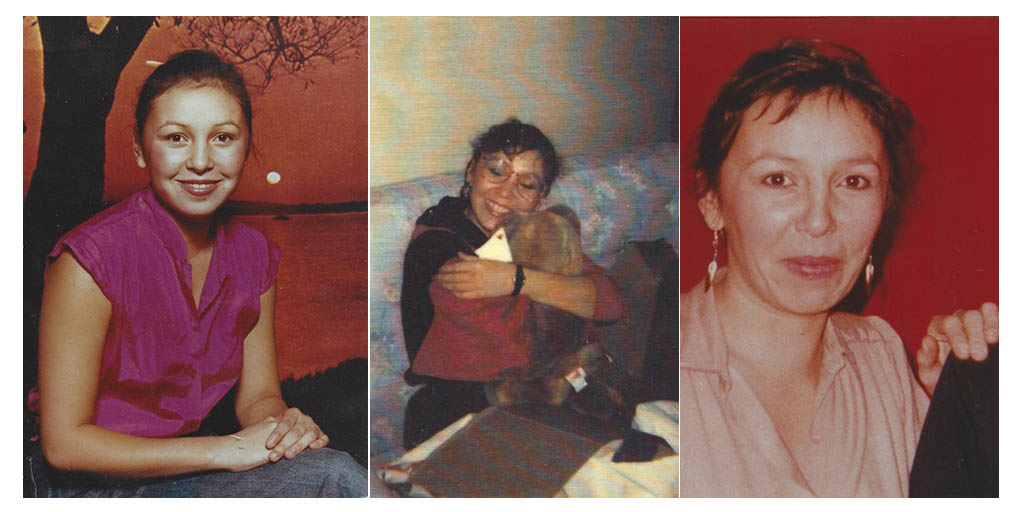Shades of Our Sisters Installation honours life of Sonya Cywink
 CREDIT: PROVIDED BY CHRIS HANNAH
CREDIT: PROVIDED BY CHRIS HANNAHSonya Cywink will be honoured in the Shades of Our Sisters installation from Nov. 4 to 8 in room M3001.
Fanshawe College will honour the lives of the Missing and Murdered Indigenous Women and Girls, transgender, and Two-Spirit Peoples (MMIWGT2S) with the Shades of Our Sisters Installation.
Leah Marshall, Fanshawe’s Sexual Violence Prevention Advisor, sent an email to Interrobang with more information about Shades of Our Sisters. The installation combines personal artifacts, film, and audio to tell the story of Sonya Cywink, one of the many MMIWGT2S. Cywink is also represented in the Shine the Light on Woman Abuse campaign, along with current Fanshawe student and survivor Natalia Jimenez.
There will be a Traditional Opening of the installation on Nov. 4 between 5 p.m. to 7 p.m. Speakers include Elder Liz Akiwenzie and Cywink’s family, with a student drum group performing. The College community can stop by room M3001 from Nov. 4 to 8 between 9:30 a.m. and 3:30 p.m. to view the Shades of Our Sisters Installation.
“I think Shades of Our Sisters in particular does a really good job at highlighting the individual instead of looking at the numbers,” said Chris Hannah, student success advisor for the Institute of Indigenous Learning. “I think sometimes, when you hear a number like 1,200 women — and I think that number continues to climb as time goes on — it’s really easy to lose context of what that actually means and how that would impact people.”
Marshall said that Cywink’s letters, belongings, and videos made by her family will honour her life in the installation. She said that the installation will help people connect to Cywink.
“By having individuals come in and connect to Sonya’s life, they’re able, I think, to recognize the impact of each life that has been lost,” she said. “The impact on a community, the impact on family members, the impact on the things that go far-reaching.”
She added through such initiatives, MMIWGT2S will be brought into the forefront and educate tomorrow’s professionals on intersecting oppression in their workplaces and in their personal lives.
“As we work towards violence prevention, the way of changing our culture is also helping to educate people about the issues of gender-based violence and how to support and care for those people in our lives that have experienced this violence,” Marshall said. “But also how to change a culture to a culture of consent and understanding that racism and sexism can go hand in hand.”
Along with Shades of Our Sisters, other events at the College like the REDress Project, Faceless Dolls Project, and the Moose Hide Campaign bring attention to the MMIWGT2S across the country. Hannah said the Moose Hide Campaign, held at Fanshawe on Nov. 20, is a men’s fast to address the issue.
“I think a lot of other campaigns are very heavily female-focused, as it’s viewed as a women’s issue, right?” she said. “But in reality, we need men to support and to be good influences on other men around them who maybe don’t have positive experiences with women.”
In the first year of the REDress Project, now in its fifth year, Fanshawe’s students, staff, and faculty wrote between 400 to 500 letters sent to the Prime Minster’s Office calling for an inquiry into the issue. The National Inquiry into Missing and Murdered Indigenous Women and Girls is now complete and the final report can be found online at mmiwg-ffada.ca.
Hannah said that while all of the work brought lots of attention to the issue, noting that it circulated the news cycle for quite a long time, she is concerned about the issue fading away from people’s thoughts.
“I’m maybe a little bit concerned now that the inquiry has been completed, that it will start to fade from people’s minds as people who are maybe not Indigenous will view it as being resolved, which is not the case,” she said. “I mean, all the inquiry did was state that irrevocably, yes, there is a problem and there were calls to action attached to that.”
She added that she now hopes that people look at the calls to action, and that anyone who wants to learn more information should look at the inquiry.
“It’s massive, but if you have any questions that’s where you can find all sorts of good information.”
Students who have experienced gender-based violence and/or sexual violence can contact Marshall, who can be reached via email (lkmarshall@nullfanshawec.ca), phone (519-452-4465 or 1-844-666-SVPA [7872]) or by booking an appointment with Counselling and Accessibility Services in Room F2010.
The Institute of Indigenous Learning, in Room A1047, can be reached by calling 519-452-4430 ext. 4619. Hannah can be reached via email (channah@nullfanshawec.ca).














